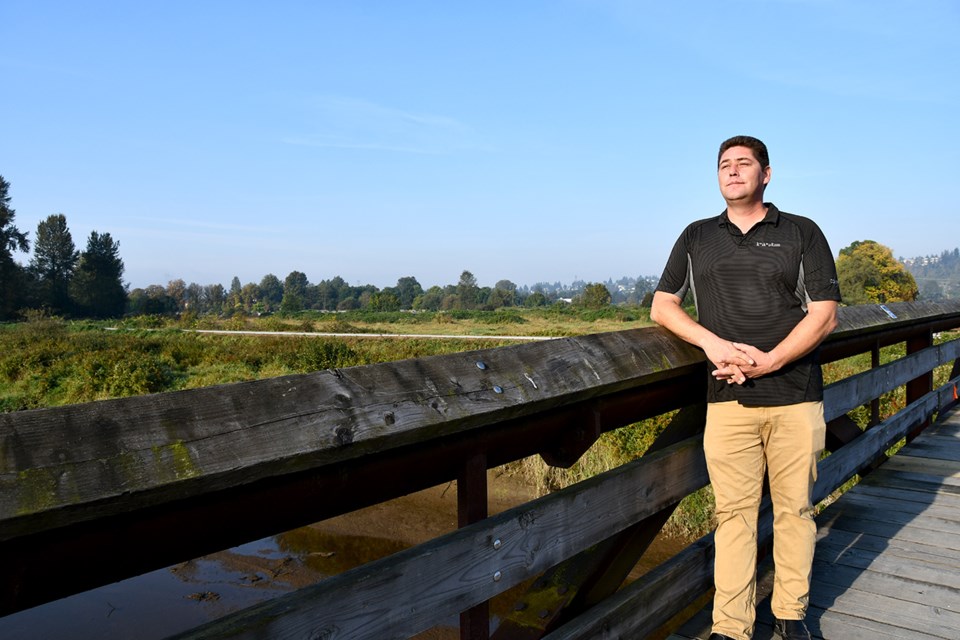Tuesday is the deadline for the City of Coquitlam and kʷikʷəƛ̓əm (Kwikwetlem) First Nation (KFN) to apply for up to $20 million in upgrades to the dikes in southern Coquitlam.
The two agencies are asking for the full amount available to municipalities and First Nations as part of the Investing in Canada Infrastructure Program’s Green Infrastructure BC Adaptation, Resilience, and Disaster Mitigation (ARDM) Program.
Jonathan Helmus, Coquitlam’s utilities director, told the Tri-City News the city received letters of support from Port Coquitlam and Metro Vancouver for the joint bid.
Metro Vancouver is the diking authority for the system in Colony Farm Regional Park.
“This project will help both our communities plan for the future, improving resiliency and protection related to climate change and anticipated sea-level rise, and also addresses an issue of long-standing concern for the kʷikʷəƛ̓əm First Nation,” he said.
If OK’d, the cash would be used to raise four kilometres of the dike up by two metres — depending on the sections — along the Fraser River and on the western side of the Coquitlam River, from the Mayfair Industrial Park and east to the Forensic Psychiatric Institute, Colony Farm Regional Park, through KFN’s reserve and Lougheed Highway.
The City of Coquitlam would contribute $2.7 million toward the flood mitigation improvements while KFN would be responsible for $1 million of the project costs.
Preliminary designs, and hydrological and geotechnical studies have not yet been done.
Helmus said the area is significantly cultural, ecologically sensitive and busy: Last year, Colony Farm Regional Park saw about 430,000 visits with people taking in the sights at the community gardens, as well as walking the extensive trail network.
KFN Coun. John Peters told the Tri-City News that “since the dikes were built without Kwikwetlem’s involvement, Kwikwetlem’s past leaders faced many challenges due to the high waters from the river and the Nation not being protected by the diking system since it was created in 1914."
Peters, who’s responsible for KFN emergency management, housing, public works, community and education, said the non-standard dike has put the Nation’s cemetery at risk; it’s believed there are 100 bodies at the site near the Sheep Paddocks Trail.
In addition, the older dike is threatening the restoration work at the Wilson Farm hatchery for the Juvenile Salmon Habitat Enhancement Project. Fisheries officials are trying to bring back the Kokanee Sockeye and other species to the Coquitlam River.
Peters said KFN "appreciates the city reaching out" for the grant application.
"It’s a small step toward reconciliation," he said. "We have Elders who know the land and the history, so we are working with their traditional knowledge."
A total of $81.8 million is available through the federal and provincial government’s ARDM program to build, modify or reinforce infrastructure — including natural infrastructure — such as dikes, flood walls, pump stations, seawalls and bulkheads.
The funding will also pay for restoring wetlands and shoreline protection buffers.
"The funding will go a long way in protecting B.C.'s residents and communities against the impacts of climate change into the future," said Jennifer Rice, B.C.'s parliamentary secretary for emergency preparedness, in a news release.





